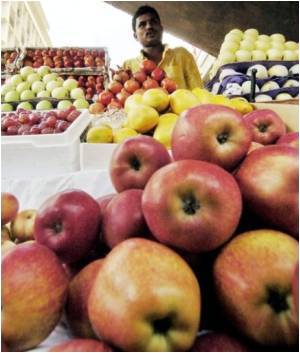Research indicates that with more food production in cities, the safety of the produce grown in urban gardens becomes increasingly important.

"Most surface contamination in urban settings like Baltimore, Brooklyn, Detroit or Indianapolis is from harmful metals, especially lead, and tends to be found near roadways, older homes or lead smelters. Sources of contamination can be automobile exhaust, degraded paint, tire and vehicle debris, industrial emissions or other products of human technology," said Filippelli, who is an international leader in the emerging field of medical geology.
He encourages urban gardeners to study a map of their metropolitan area and determine potential soil contamination risk by proximity to busy streets, major roadways, freeways, dilapidated painted structures or older industrial facilities.
Gardens with no or low levels of lead contamination as determined by location or with test results of less than 200 parts per million (ppm) can be abundantly planted, but may benefit from high phosphate fertilizer which immobilizes metals like lead.
For gardens at medium risk based on location or soil tested at 200-500 ppm, he recommends covering the soil, planting in raised bed settings, and mulching between beds to reduce the risks of tracking lead-rich soil onto the plots or into the home.
For gardens at high lead risk or found to have lead levels of over 500 ppm, he counsels proceeding with caution as contamination could be coming from the soil below and the air above. While taller fruit plants are probably safe to consume, root vegetables and leafy greens like lettuce and kale are not, mainly because of the difficulties of cleaning this produce thoroughly before consumption. In this setting, raised-bed planting is critical, as is ensuring mulch or ground cover between beds and extending for 10 feet around the perimeter of the garden.
"Urban gardens are powerful tools for personal health and for neighborhood revitalization. These plots should be encouraged but need to be tended with special care to ensure that lead does not adhere to the food children and adults are consuming," said Filippelli.
"Environmental awareness can ensure that a garden is a healthy place to work and that food is safe to eat and share," said Filippelli who has studied lead contamination in urban soil for almost a decade.
Source-Eurekalert
 MEDINDIA
MEDINDIA




 Email
Email





